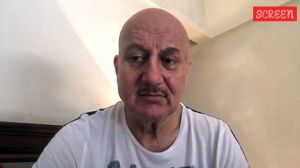Higher duty on gold was not only fueling smuggling but also causing market distortion and revenue loss, as it led to imports in non-bullion forms under various free trade agreements (FTAs) where they qualified for lower or even nil rates, Central Board of Indirect Taxes & Customs (CBIC) Chairman Sanjay Kumar Agarwal said in an interview with Soumyarendra Barik and Ravi Dutta Mishra.
Agarwal stated that tariff rationalisation is undertaken with an objective to promote domestic manufacturing and boost exports and that the roadmap to bring petroleum products under the ambit of the Goods and Services Tax (GST) regime could start with crude oil as it would help integrate the entire petroleum product supply chain. Edited Excerpts:

What was the reason for a sharper than expected gold duty reduction?
The duty rate on gold has been reduced after it was temporarily increased in 2022 due to specific circumstances. It was a temporary move. Once those circumstances changed, the rate was lowered again. We noticed that there was a tendency to bring gold in non-bullion form under different FTAs where those forms were entitled for concessional rates and even nil rate. This prompted certain import restrictions too. Besides, the expected revenue increase did not materialise, and smuggling rose, fuelling illegal activities.
What should be the roadmap for bringing petroleum products into GST?
Crude oil could be the first item brought under goods and services tax (GST), followed by natural gas. Although carving out compressed natural gas (CNG) may lead to complications, it can be considered. The reason is that crude oil goes into refineries as a feedstock and bringing crude oil in GST will integrate the entire supply chain. Subsequently, other fuel items used in transportation can be included under GST.
The Standing Committee on Chemicals and Fertilisers recommended lowering GST on fertilisers. Your thoughts?
Story continues below this ad
This can be reviewed by the rate rationalisation committee. Such changes often have significant revenue implications. If revenue decreases, it must be recovered or compensated elsewhere. Large rationalisation exercises must be revenue neutral.
If too many items have lower rates, taxes on demerit goods used by affluent classes may increase. But the distinction between items used by different classes are blurring. Earlier cars were used by the affluent class now the car ownership is increasingly moving to the middle class.
What are the possible areas for future duty reductions?
Our proposals are based on a clear thought process: tariff barriers should be lowered where we want to prioritise domestic manufacturing. If an item is covered under the Phased Manufacturing Programme (PMP), then duties will be adjusted according to the PMP. For export-oriented industries, we are looking at ways to make their products more competitive internationally. We will conduct a thorough review with these objectives in mind and consider proposals as they come.
Very elaborate exercise was carried out to review the rates this time too because there are certain items which are imported under conditional exemption notifications. Now in the law also, there is a requirement to review such conditional notifications within a set period.
So that exercise will be carried out in respect to notifications which otherwise would be lapsing on March 31, 2025.
Story continues below this ad
What is the rationale for reducing duty on mobile phones?
Initially, the duty on mobile phones was zero, and everything was imported. Some manufacturing began, but with minimal value addition. Everything was assembled and sold without significant value addition.
Then the government included this sector in the PMP, implementing a graded duty structure, increasing duties to 20 per cent on mobile phones and printed circuit board assemblies (PCBA). PCBA accounts for 55 per cent of a mobile phone’s cost. If PCBAs are manufactured, assembled, or populated domestically, value addition occurs here, even if some parts are imported. This approach deepens the value chain. As a result, production has risen significantly, reaching Rs 4.1 lakh crore last year. Exports are increasing, with India producing more mobile phones for export. Despite higher production, PCBA imports have declined, indicating domestic production. The objective is being met.
Chargers now, in 100 per cent cases, are being produced in India. Maybe some specific mobiles have to be exported to European countries where the pins are different and the export is not in such volumes that we start manufacturing those kinds of charges. In such cases, charges in limited quantities for export purposes only are being imported.
Why were duties on telecom equipment, components raised?
Story continues below this ad
To encourage the manufacturing of PCBAs for telecom equipment, we need to maintain a slightly higher rate, to incentivise domestic production. We hope this will be as successful as it has been for mobile phones.

































